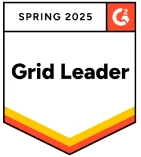Build A Short-Term Rental Management Software

Rental businesses are gaining popularity in today’s era. People can book spaces/properties with just a single click, with short-term rental platforms that make the booking process swift and easy.
Businesses, in general, want to invest in demanding and lucrative platforms. Moreover, given the instant popularity of online marketplaces like Expedia, Airbnb, Vrbo, and TripAdvisor, entrepreneurs are keen to infuse their money into this profitable venture.
Talking about the complexities, property handling, managing seamless communication and amplifying the experience are the main concerns that the business faces. Short-term rental management software is used to solve those problems. It ensures a seamless workflow and overcomes challenges via advanced tools.
What Is Short-Term Rental Software?
This property management software acts as a centralized platform that streamlines operations handling. It can simplify reservations, shunning double bookings, automate processes, and more. Build property management software with the ultimate features to optimize operations for diverse property types while keeping you ahead of competitors.
Understanding The Significance Of Short-Term Rental Management Software
Short-term rental software plays a crucial role in synchronizing business operations and bringing the customer experience to the optimum level. It most likely acts as an assistant to make bookings, communicate in real-time, process payments, reduce administrative overhead, report and analyze data, etc. The software helps property managers track their KPIs, check occupancy rates, keep tabs on revenue, detect insightful trends, create strategies, and make accurate decisions.
Short-term rental management software works perfectly for individuals traveling for less than 30 days. So, management becomes quite easy as it includes vocational and temporary stays. The booking frequency is mostly on a weekly or nightly basis. There is also the smooth integration of lease management software development that offers short-term agreements with detailed terms and conditions.
Want to Build short-term Rental Software?
Steps To Build Short-Term Rental Software
Market Research
This is the first step in software development. It involves understanding the stakeholders’ pain points and needs. Additionally, the demands of the property owners and customers are considered.
Competitor Analysis
One of the crucial phases is to have an in-depth knowledge of the market trends, understand what the competitors are offering, and gain valuable insights to tap into emerging opportunities. This will also help interpret the gaps and titbits of the industry dynamics to lead in the right direction.
Pick The Right Development Company
A result-oriented approach needs to be adopted to achieve the desired results and reach the desired goals. This includes considering the parameters regarding the timeline, budget, milestones, roadmap, etc. Building the best short-term rental management software from scratch requires precision and detail.
Minimum Viable Product (MVP)
This is the pivotal step of the development process, where the ideas are validated, and a prototype is created. The main focus is on the essential features that describe the short-term rental software’s core value proposition.
Iterative Development
Further, the software is set for massive improvement based on user feedback. Market trends are taken seriously, depending on the development roadmap for alterations. Feedback is taken seriously, and strategies are implemented to increase performance and usability. Agile methodologies are adopted to ensure the software meets user expectations.
API integration
The software is integrated with third-party services for more functionality. These encompass payment processing, map integration, cloud databases, and messaging platforms. They help provide an exceptional experience that adds greater value to the short-term rental software in terms of compatibility, reliability, flexibility, and security.
Quality Assurance
Extensive testing is required to ensure security and quality are maintained at all levels. The software tests address and remove the irregularities to keep the software’s performance and efficiency before deployment. Different types of testing techniques and a combination of automated and manual testing tools are used. This helps maintain the throughput, enhancing the user experience for a much smoother launch.
Launch and Market
After rigorous testing, the rental marketplace software is ready for launch. Various marketing strategies are implemented to promote it to the broader user base, which includes customers, property managers, and owners. Diverse social media marketing channels are used for the promotion. The engagement with the target audience and the necessary buzz are creative, luring a huge audience.
Best Short-Term Rental Management Software
RentalReady
The software offers a wide array of tools that help improve the overall efficiency of property management. Driven by contemporary technology like AI, user communication is enhanced through chatbots, advanced algorithms to compare prices, and automation to perform repeated tasks.
Guesty
The software optimizes hospitality operations through state-of-the-art technologies, helping effectively manage and streamline the operations all through a unified platform. It has proudly partnered with Airbnb, booking.com, etc., and has splendid packages for every business size, such as Lite, Pro, Enterprise, etc.
Avantio
It is an amazing vacation rental software that has helped businesses grow tremendously. The software has the potential to simplify complex processes and facilitate smooth communication. Property owners can synchronize booking data, adjust rates, and reach out to the maximum number of guests with varied channels.
Lodgify
Another impeccable software that has gained immense popularity among users and businesses. The intuitiveness, peculiar features, and unparalleled benefits grab the users’ attention, making it a notable short-term rental software. It possesses attributes like a scheduling calendar, an automated messaging system, task management, etc.
Hostaway
It is one of the best rental marketplace software that provides ultra-modern reporting tools with automated payment processing features, making it stand out from the other available software. The user-friendly interface and the scalability features make it a fantastic choice for reliable booking services.
Get Hold Of Untapped Possibilities With Best-In-Class Short-Term Rental Software
Spellbound Features Linked With Short-Term Rental Software
For Guests
Search and Filters: This feature allows guests to browse through properties based on location, price range, or other amenities.
Booking and Reservation: This helps with instant bookings by providing real-time updates concerning availability, price quotes, and instant bookings.
Secure Payment Processing: Safe transactions are processed with multi-payment methods, such as credit cards and e-wallets, and robust payment gateways.
Customized Dashboard: Helps the guests to browse their past bookings, active reservations, and upcoming stays.
In-App Chat: This feature enables users to communicate directly with property owners and managers about the property or provide details about their stay.
Reviews & Ratings: Enables the guests to leave feedback on properties based on their past stay.
Push Notifications: Instant alerts provide details related to the booking confirmation and instructions on the check-in and stay post-stay feedback request.
24/7 Support: This attribute provides customer support for questions, issues, and emergencies during the stay.
Admin Panel
Multi-Property Management: All properties are managed in a single platform, with reservations, availability, pricing, and housekeeping schedules handled.
User Management: This allows admins to manage guests, property owners, and staff members in the system, including creating and removing users with assigned roles and permissions and updating them.
Booking & Reservation System: Users can view and manage all booking activities, including confirmation, cancellation, and modification.
Analytics & Reporting: Gives detailed financial reports, occupancy rates, revenue projections, and guest demographics.
Payment Processing: Secure payment processing for handling payments and refunds, and keeping track of all transactions in the properties.
In-built Calendar: Helps view all the bookings across all properties, and it is color-coded for availability and reservation status.
Revenue Management: Helps admin in dynamic pricing, tracking of rates across multiple channels, and the ability to track profitability.
Support Ticket System: This feature manages support tickets from both the guest and the property owner to resolve booking-related issues and maintenance issues.
For Property Owners
Listing Management: Involves creating, updating, and deleting a property’s description, photos, price, and availability.
Reservation Management: Helps view and manage incoming reservations and accept, decline, or modify bookings.
Calendar Sync: Synchronize the property’s calendars on third-party sites to prevent duplicate bookings and ensure accuracy in price quotes.
Financial reporting: Helps generate detailed financial records, including income reports, tax summaries, and payouts.
Messaging System: Directly contacts guests regarding booking information, check-in instructions, or issues related to a booking.
Pricing & Rate Control: Seasonal or particular event-specific price setting and applying for discounts and promotions.
Review & Feedback: Guest reviews can be read and responded to, and feedback is monitored to improve future guest experiences.
Document Storage: Stores and oversees all important documents, from contracts to insurance papers and permits.
Owner Dashboard: The property managers can view key performance metrics for all properties, including occupancy rates, total income, and average nightly rates.
Payout & Commission Tracking: This feature calculates earnings, tracks commission fees, and offers payout management, all of which can be done automatically.
Benefits of Short-Term Rental Software
The software’s prime task is effectively handling reservations, which requires precision without any overlap. This swiftly performs all operations, amplifying your business experience.
Convenient Booking
Several errors can occur while making a reservation, such as repeated bookings unknowingly. With this software, every booking operation is automated due to the in-built calendar that updates everything without leaving any room for confusion. As a result, it leads to more accuracy, takes less time, and, therefore, uplifts the business processes.
Secure Payments
As far as multiple bookings are concerned, there are higher chances that the data can be compromised, leading to fraudulent activities. The best short term rental software comes with robust payment gateways that ensure that all transactions are tracked, showing complete payment history.
Dynamic Pricing
The software’s top feature is dynamic pricing, which allows users to adjust rates and make decisions accordingly, keeping in mind their profits. This becomes possible because of the fluctuation of market trends and seasons. Altogether, it amplifies revenue, helping businesses gain a competitive edge even in crucial times.
Advanced Analytics
The software helps businesses generate high-quality and meaningful reports. It offers valuable insights into booking trends, guest feedback, performance (profit and loss), revenue generated, occupancy rates, and more. With accessible, comprehensible reports, businesses can track their improvement and thus make necessary decisions.
Better Customer Satisfaction
The software provides a superior guest experience with long-standing facilities that lure customers, leading to repeated visitors. This is because of the spectacular attribute that allows seamless check-in and check-out, offering each guest a personalised experience. The positive reviews and the higher occupancy rates eventually result in increased customer satisfaction.
Are You Ready To Grow Your Business With Short Term Rental Software
How Much Does It Cost To Build A Short-Term Rental Software?
Several parameters influence the budget of short-term rental software. Some of them are feature integration, customization, development process, ready-to-deploy, and building from scratch. The development cost ranges from $10,000 to $100,000, depending on the level of customization.
White Label App or Software From Scratch
White-label software development usually takes less time as the code is already developed and tested. It is ready to launch and has a comparatively low customization scope, leading to lower development costs.
Short-term rental software built from scratch requires design and feature integration according to the client’s requirements. This usually takes more time, resulting in higher prices.
Development Costs
Frontend: Building an intuitive interface and making the user experience spectacular, of course, will increase the budget. It includes adding features like booking forms and property listing pages, creating dashboards, adding advanced search filters, etc.
Backend: Assimilation and effective data management require robust cloud and database infrastructure, which is essential for user management. This involves core functionalities like booking management, property listings, etc.
Third-Party Integration: The short-term rental software incorporates third-party APIs to elevate the overall working, such as payment gateways, calendar synchronization, geolocation services, and other chatting tools.
| Development Stages | Development Cost |
| Frontend | $6,000 – $12,000 |
| Backend | $7000-$15,000 |
| Third-Party Integration | $5000-$10,000 |
Geographical Location
The area/region, country, and city decide the development cost. Certain countries have already become technical hubs, and some are on the route to becoming one. So, based on that, the pricing policy will vary. See for yourself;
Bottom Line !!
The best short-term rental software helps centralize all tasks on a single platform. It works well and provides necessary functionalities, meeting the needs of users ( both property owners and guests) and businesses.
Hyperlocal Cloud will help you develop highly scalable and customized short-term rental software. Whether you’re handling a few properties or an extensive portfolio, our top 1% vetted developers can be personalized to fit your requirements.
The software will be integrated with multiple booking channels, and its ultra-modern automation features make it a quintessential choice for both small and large rental businesses. Integrating comprehensive reporting tools gives businesses an ultimate advantage in maximizing revenue and effectively handling properties.





